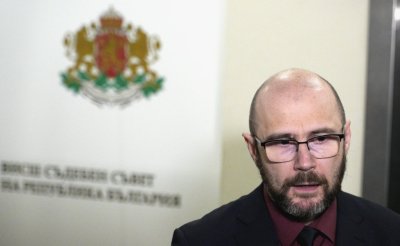Further tax hikes are expected in the coming years due to the parameters set out in the draft 2026 budget, experts predicted at the Investor Financial Forum. In the coming days, the Fiscal Council—already highly critical of the draft—will submit its opinion to Brussels, marking the first time the Bulgarian government will have to formally consider its analysis.
For the first time, the Bulgarian government will need to take into account the criticisms of the Fiscal Council, which is currently preparing its report. This reflects the standard practice followed by countries in the eurozone, which will now also apply to Bulgaria.
“The government will be obliged either to adjust its policies in line with our recommendations or to provide a detailed explanation as to why it does not accept them,” said Lyubomir Datsov, member of the Fiscal Council.
“At the very least, recommendations for policy changes are necessary, because this is currently the main problem. The situation is rather unusual, there is uncertainty about the overall framework and the details. Personally, I do not expect much to be changed. The entire framework outlined for the coming years raises more questions than answers. Its logic, if any, seems to be moving in a direction quite different from what is needed—especially regarding investment priorities and the need for anti-inflationary measures given that the economy is slightly overheating,” Datsov added.
Experts also warned that problems on the expenditure side of the budget will inevitably lead to higher taxes.
“In the long term, over the next four years, if this trend continues and is not contained—and currently there are no policies on the table to address it—this will not be the first tax increase, unfortunately. Even a minor crisis could put our budget under pressure, as we have no flexibility,” Datsov said.
“This is the second consecutive year of significant increases on the expenditure side, which cannot easily be covered by revenues. This creates a structurally large budget deficit, which will pressure governments—perhaps not immediately, but in the coming years—towards a significant rise in the tax burden. We are also seeing a substantial increase in public debt as a result of ambitious spending. With the economy projected to grow nominally by 6.4% next year, expenditure growth is close to 15%,” commented Lachezar Bogdanov, Chief Economist at IPI.
“From a business perspective, this budget is not favourable. It is a budget geared towards domestic consumption, inflationary spending, and the distribution of funds financed by debt rather than by productive economic activity,” said Kamen Kolchev, financial analyst.
However, a positive signal for investors remains Bulgaria’s forthcoming accession to the eurozone.
“This will grant access to capital markets not only domestically but also internationally. It eliminates currency risk, which, although often underestimated by local stakeholders, is a real concern for Western investors,” said Velichka Hristova, banker.
“The negative aspect is that no one has reassured the public: there is nothing to worry about; you have previously switched currencies, removed zeros, and it all worked out. Of course, opportunists will try to exploit uncertainty, but this is where the state must step in and take measures,” added Kolchev.
Experts also stressed the importance of maintaining fiscal discipline, warning that excessive leniency could lead to a Romanian-style fiscal scenario.











 Чуй новините
Чуй новините Подкаст
Подкаст



















